New guidance to limit phone use in NI schools
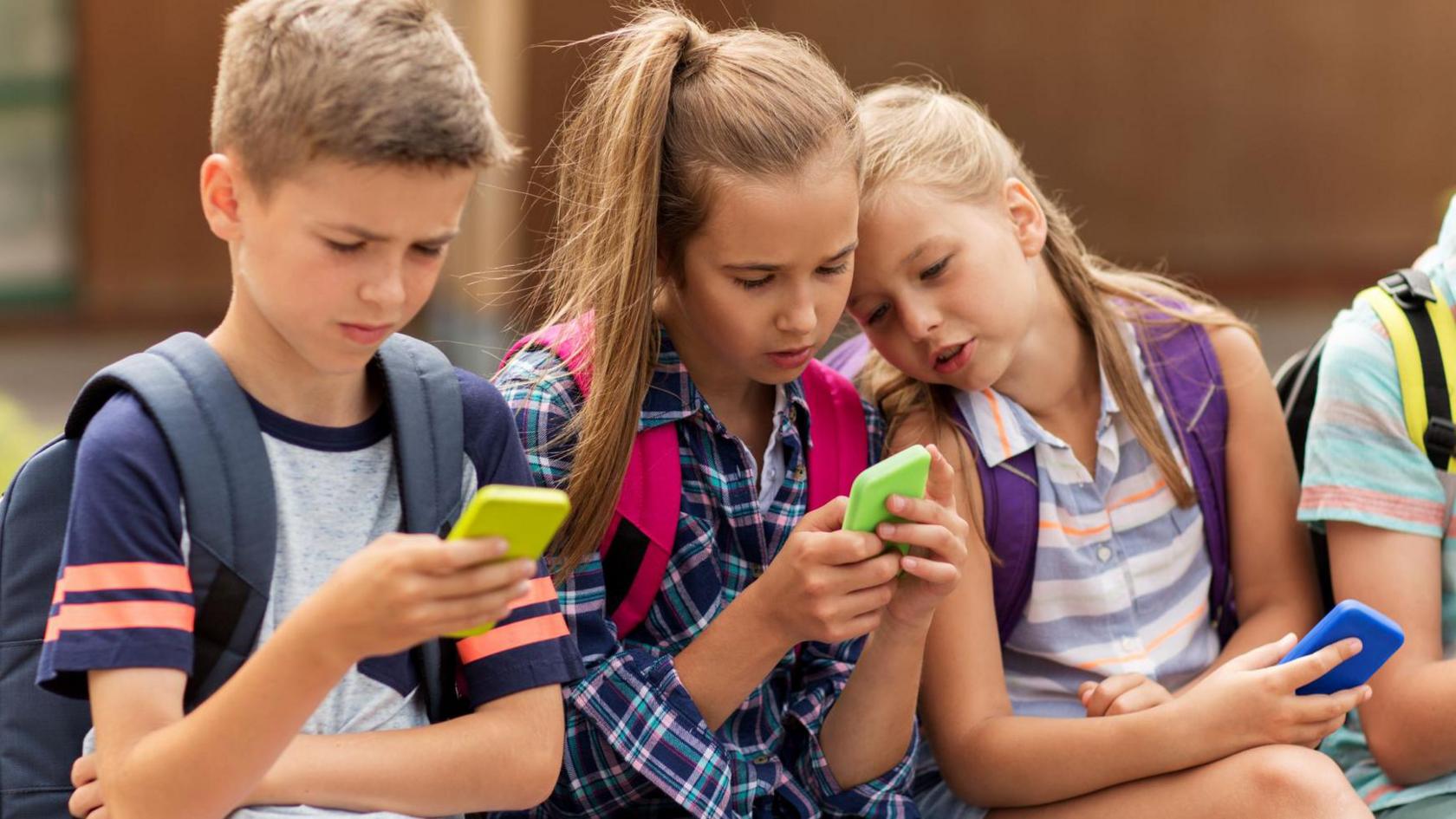
- Published
Schools in Northern Ireland are being advised to restrict pupils from using mobile phones during the school day.
Education Minister Paul Givan issued new guidance on Tuesday, which also applies to limiting use at break and lunchtimes.
He said there was growing evidence that phones "distract children from learning".
The restrictions "can have a positive impact on academic achievement and engagement", he added.
Not legally binding
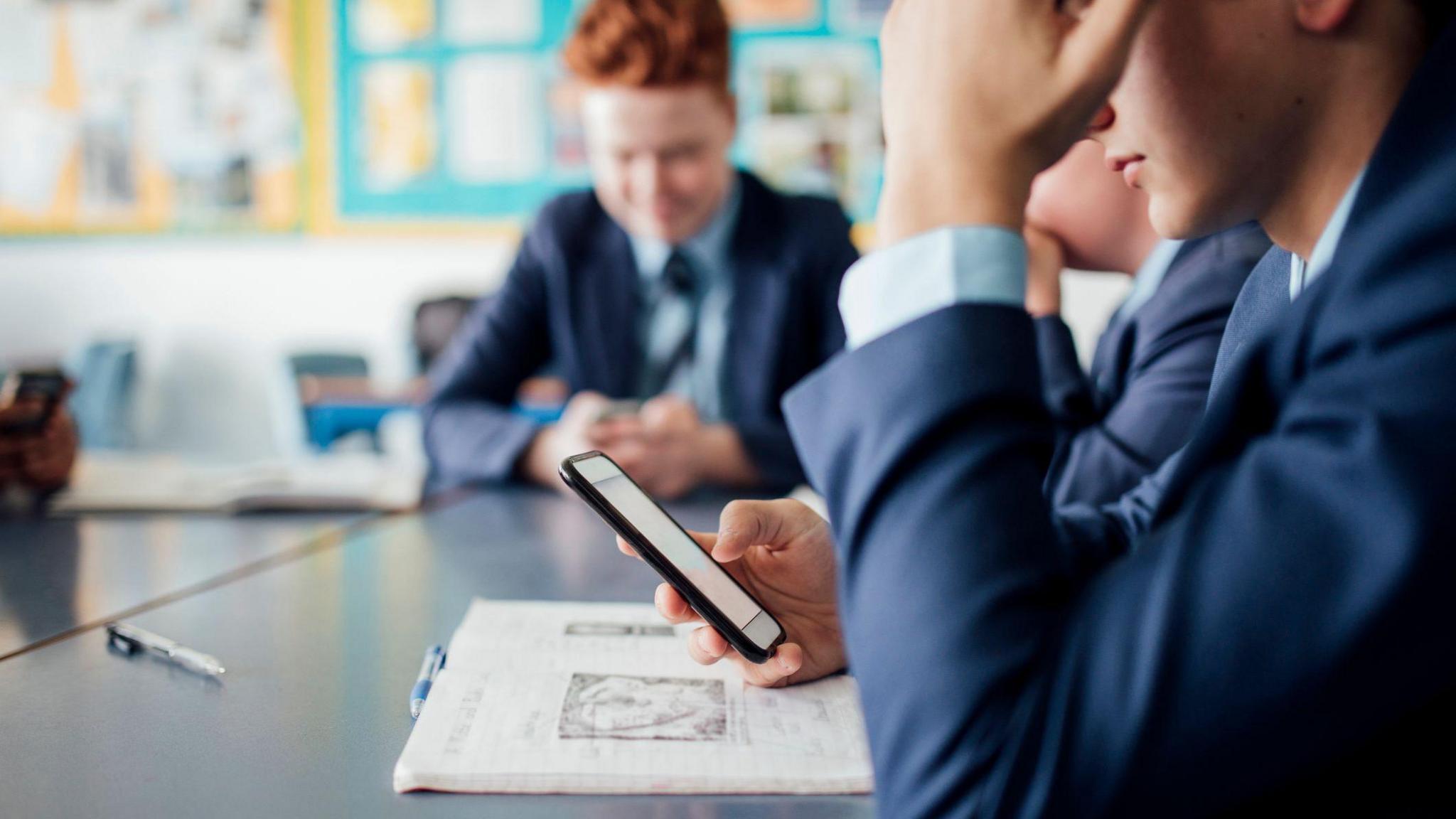
Some NI schools already have policies in place which restrict mobile phones use
Mr Givan also said the guidance will allow teachers "to do what they do best - teach".
In a statement, his department acknowledged many schools already have mobile phone policies in place.
The new guidance is to ensure a more consistent approach, it continued.
In many cases, pupils can bring a phone to school, but they must not be visible during the school day.
That means pupils cannot take them out during classes unless they are part of a lesson, or use them at break or lunchtimes.
In some cases, if a pupil is caught using a phone, it is confiscated, and the pupil can collect it at the end of the school day.
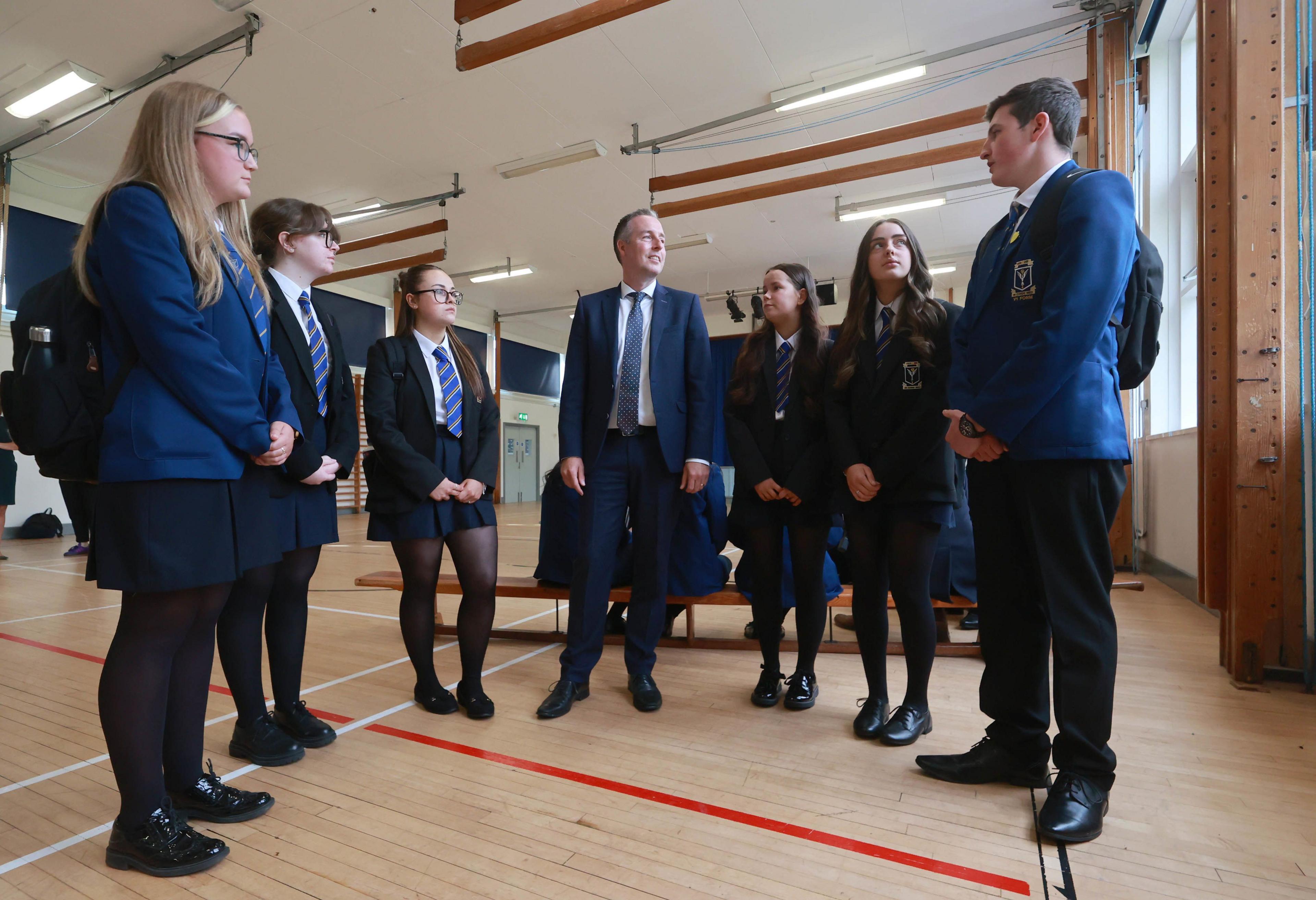
Paul Givan speaking to students during a visit to St Columbanus' College in Bangor on Tuesday
“Many countries across the world are increasingly taking steps to stop phone use at school," Mr Givan outlined.
"The new guidance will ensure schools in Northern Ireland are fully aware of the latest evidence and have practical advice around different approaches to restricting phone use.”
The guidance is being accompanied by a pilot of phone-free solutions, the department announced, to prevent pupils using phones during the school day.
This includes inviting expressions of interest from schools to use pocket-sized pouches which phones will be placed in.
These will be closed using a magnetic latch.
“Changes around phone use in schools can make the world of difference in our classrooms," Minister Givan said.
"Restricting their use during the school day allows children to better concentrate, engage and learn, as well as enjoying ‘phone-free’ break and lunchtimes so they can play, have fun, participate in sports and socialise with their friends.”

Kerry, who's in sixth form at Bangor Academy, says phones are useful for assignments and research tasks
Kerry, who's in sixth form at Bangor Academy in County Down, said the rules are "pretty relaxed".
"We're allowed to have our phones out at break and lunch and contact our friends at break and lunch, then during class we have to keep them away," she said.
Kerry pointed out that phones can be useful for school work.
"We can bring them out for assignments or research tasks."
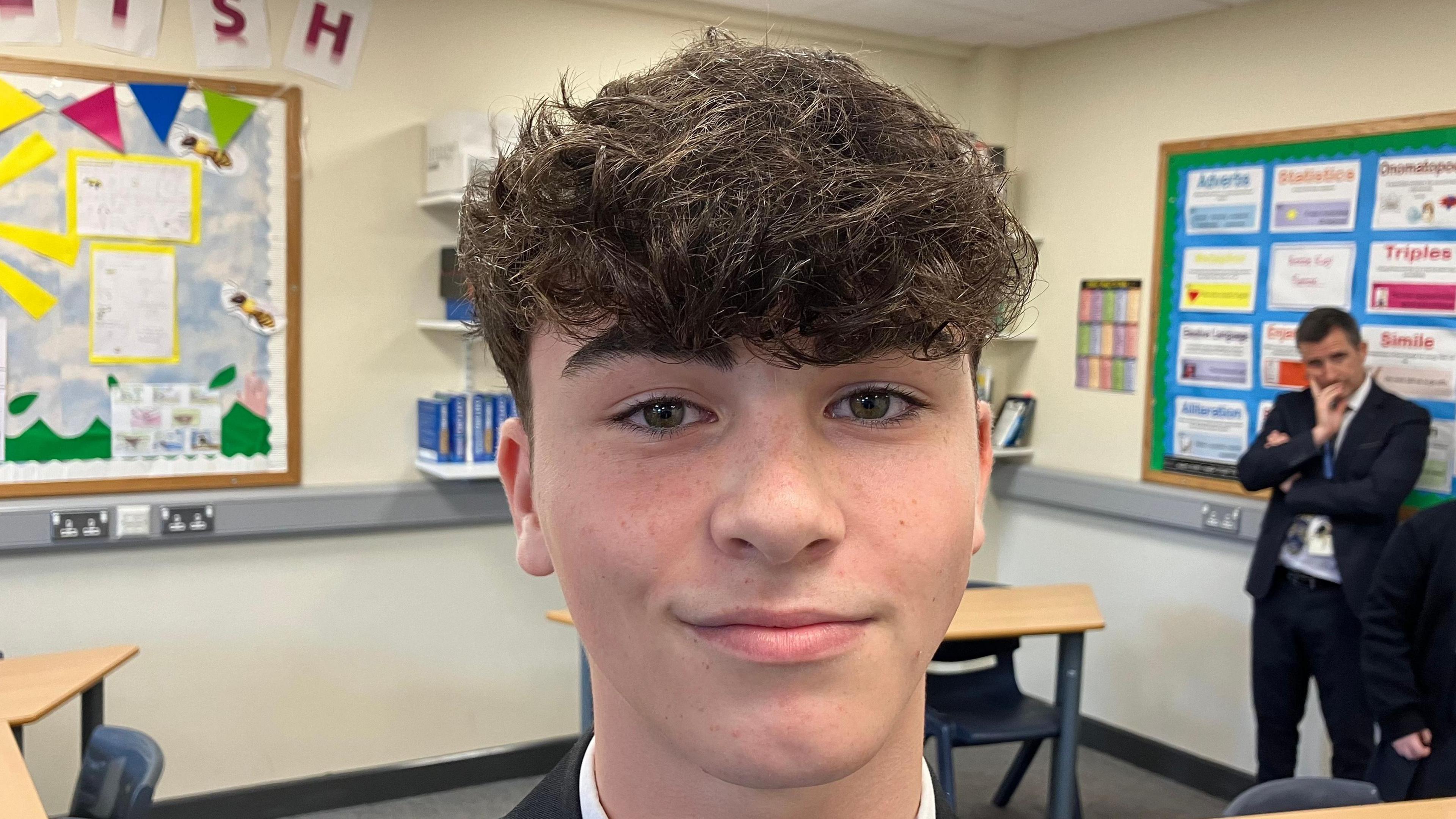
Luke, from Bangor Academy, said sometimes pupils look at their phones during lunch instead of talking
Luke, who also attends Bangor Academy, said he gets "a bit distracted" with his phone.
“I definitely find that during class when I’m going into Google Classroom you might get a notification," he said.
He thinks using your phone at school is "a hard temptation to resist”.
“I definitely feel like some restrictions are necessary but giving pupils the option definitely appeases it."
Luke also pointed out that restricting the use of phones might help pupils talk to each other more.
“Sometimes even when you go into the canteen you see people just sat on their phones, not communicating or socialising.”
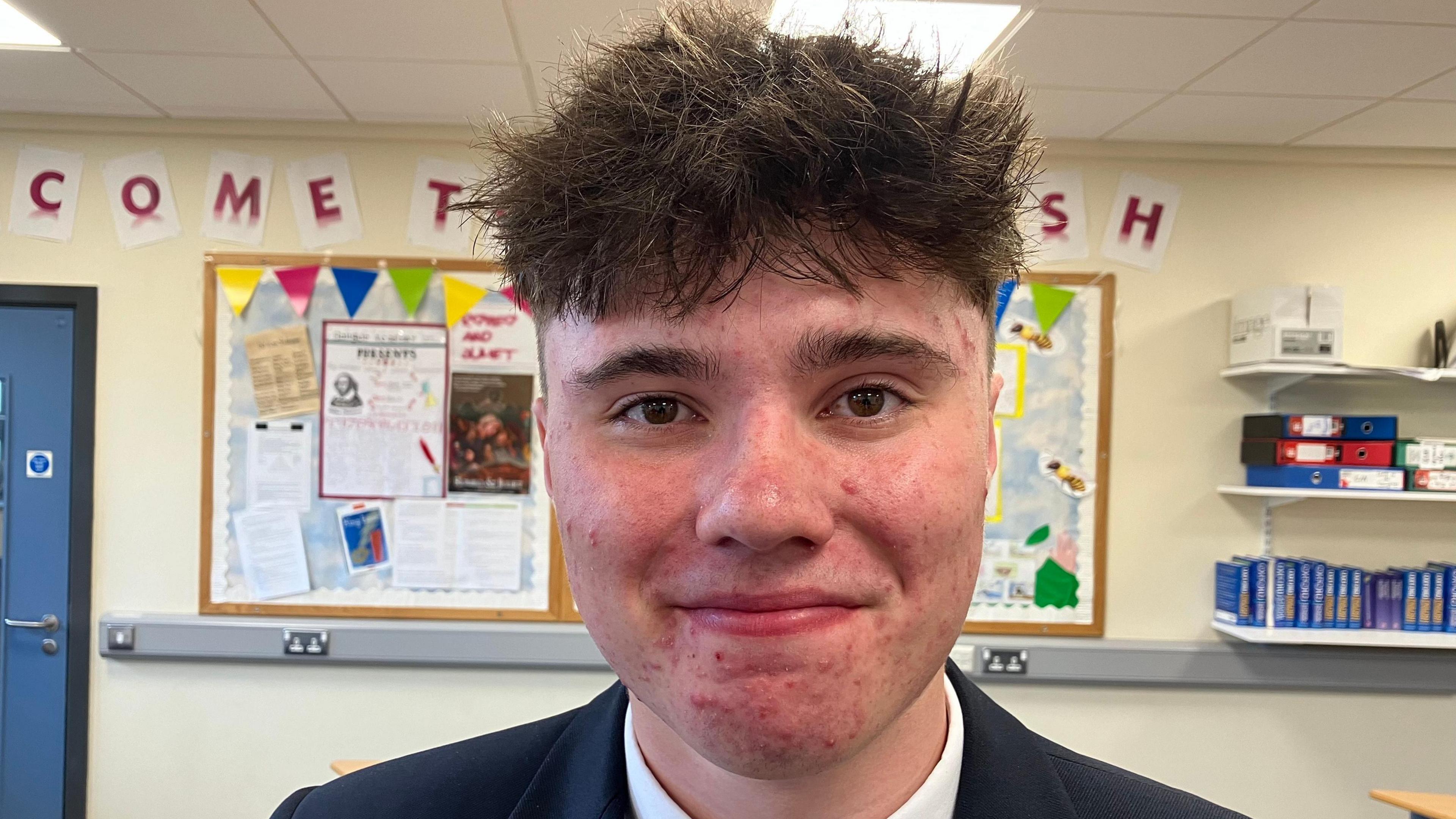
Fletcher, from Bangor Academy, said "banning your phone could tempt some students to look at it more”
Fletcher, who's also in sixth form, said he uses his phone during break and lunch time.
“I would use my phone to find my friends or contact my family or just check the time generally to see if you’re late for class,” he said.
“If I’m doing something I really like or it’s really interesting I wouldn’t have a second thought about my phone,” he added.
Fletcher also thinks that the new restriction might make pupils want to use their phones more than they did before.
“Outright banning your phone could tempt some students to look at it more.”
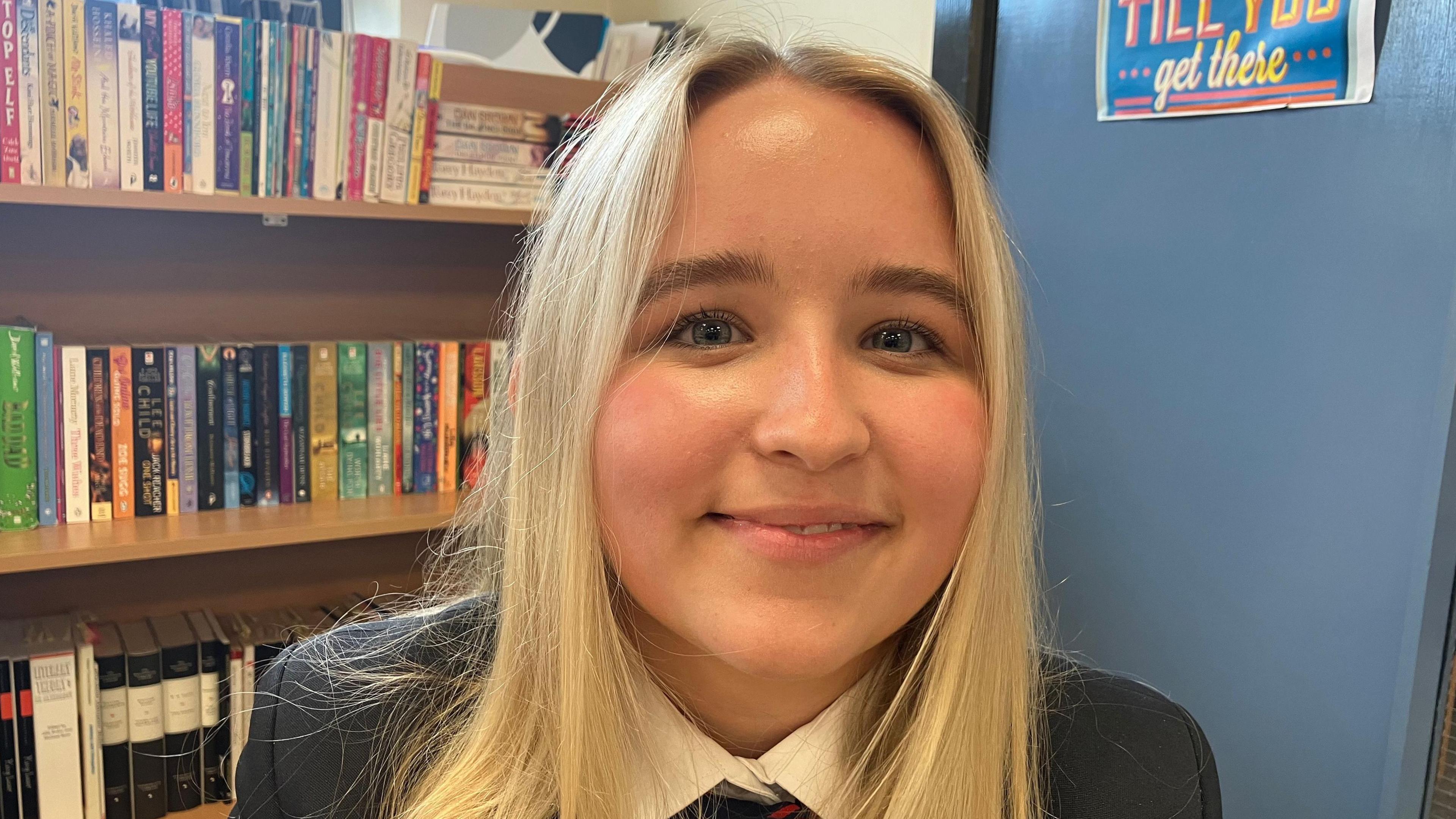
Samantha, from Bangor Academy, says she uses her phone "quite a lot"
Samantha, who also attends Bangor Academy, said: “I use my phone quite a lot - just texting people, checking things on Instagram.”
“I would say that it’s only really restricted when we’re in class.
"When we’re out of class, say at lunchtime and break time, we’re allowed to use it freely.”
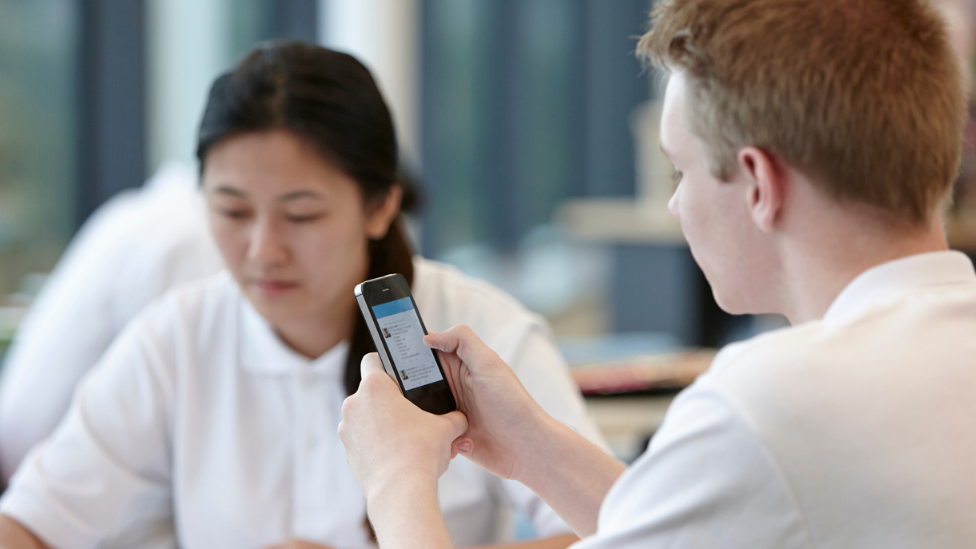
The governments in England and the Republic of Ireland have also recently advised schools to ban phones
The governments in England and the Republic of Ireland have recently advised schools to ban phones during the day.
In the Republic of Ireland, the Education Minister Norma Foley said she wanted to establish a "culture of non-acceptance of the mobile phone" in schools.
MPs in England have previously said the government should consider proposals to ban smartphones for under-16s.
Unesco, the UN’s education and science body, has also previously advised that smartphones should be banned from schools to tackle classroom disruption and improve learning.
"Even just having a mobile phone nearby with notifications coming through is enough to result in students losing their attention from the task at hand," Unesco said.
The previous guidance to schools on mobile devices from the Department of Education (DE) in Northern Ireland was eight years old.
It mainly focused on the possible educational uses of mobile phones.
Related topics
- Published14 July 2024
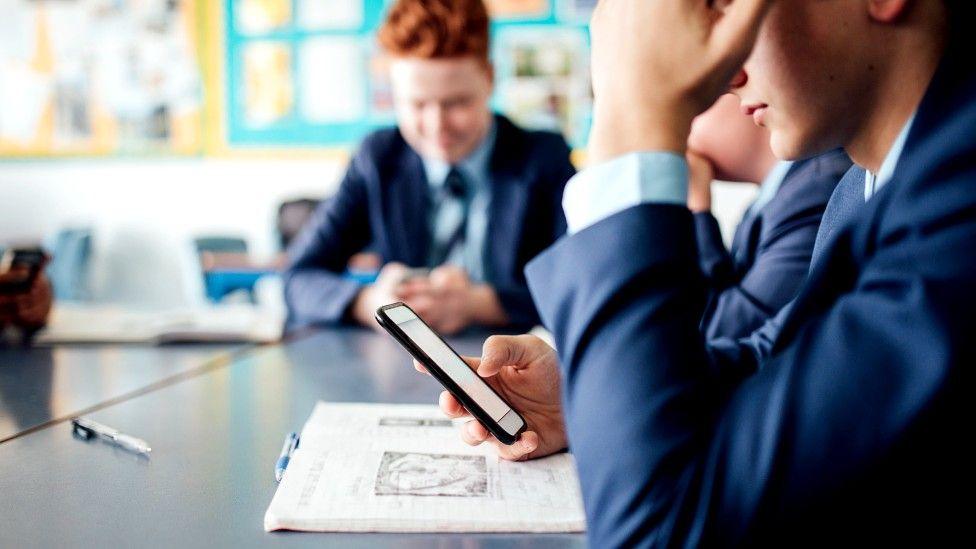
- Published29 May 2024
